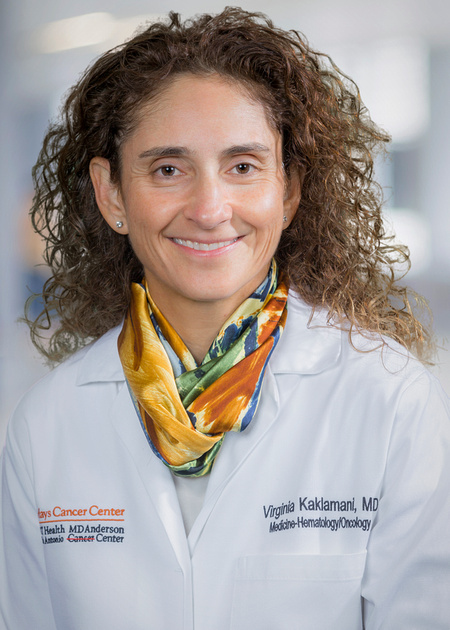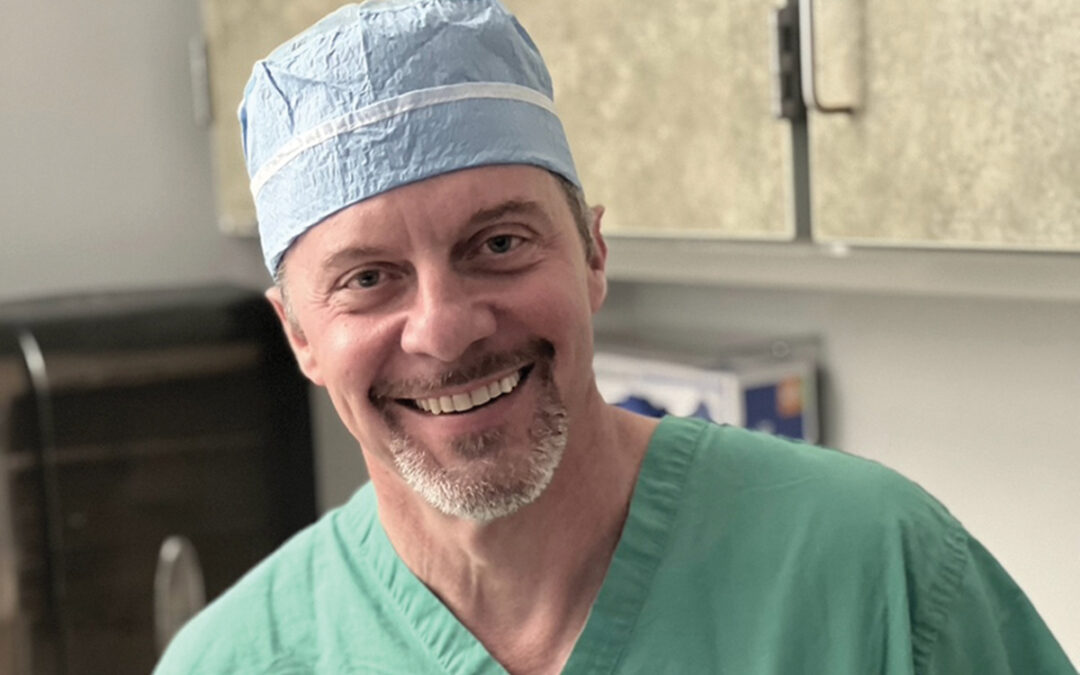
Knowledge Empowers Women to Survive Breast Cancer
By Paul J. Watkins
Advances in the treatment of breast cancer are being made continually. It’s important for women to inform themselves about these advances so that, should they receive a breast cancer diagnosis, they can better understand the treatment options available to them and be prepared to discuss those options with their physicians.
Virginia Kaklamani, MD, is a breast oncologist who is board certified and fellowship trained in hematology/oncology. She’s the leader of the breast cancer program at Mays Cancer Center, home to UT Health San Antonio MD Anderson Cancer Center. Mays Cancer Center is the community’s only NCI-designated Cancer Center, serving San Antonio and 38 counties in South Texas. She says there are recent advancements in the treatment of breast cancer that women should know. These include targeted drugs, which seek out the proteins that assist breast cancer cells to grow and metastasize, and immunotherapy, which is a group of drugs that strengthen the immune system to help fight the cancer.
“Also, the development of precision oncology has helped to customize breast cancer treatment by now allowing us to identify changes in the cancer cells,” informs Dr. Kaklamani, “and we have specific drugs for these changes. Cancer evolves over time, and we can track its evolution by tracking its changes and then using targeted drugs to kill it.”
The breast oncologist adds that an ongoing breast care routine, such as, having mammograms, and bringing unusual lumps, pain, or discharge to a physician’s attention, is vital for catching breast disease – including breast cancer – in the earliest stages. Unfortunately, because of misconceptions, recommended measures are not always followed.
“They think mammograms don’t work because they’ve heard stories about women who had mammograms that didn’t catch their breast cancer,” notes Dr. Kaklamani. “They’re also afraid that mammograms will hurt. Mammograms aren’t perfect – sometimes, they won’t identify the cancer – but they’re one of the best tests we have to detect breast cancer early.”
Current research shows that genetic mutations link obesity and breast cancer. “Obesity is associated with postmenopausal breast cancer,” relates Dr. Kaklamani. “We think the reason for that is high levels of insulin, which is a growth factor, and high levels of estrogen, which stimulates breast cells. Some women may have specific genetic mutations that can produce more insulin and therefore predispose them to breast cancer.”
Catching breast cancer early is extremely important, but Dr. Kaklamani says women can go a step further and actually reduce their risk of developing breast cancer by incorporating lifestyle changes, such as maintaining a healthy weight and exercising. “We think that a well-balanced diet that’s low in processed sugars will also help.”

Please call (210) 450-1000 to make an appointment at Mays Cancer Center. Learn more about breast cancer diagnosis and treatment at www.MaysCancerCenter.org.









0 Comments